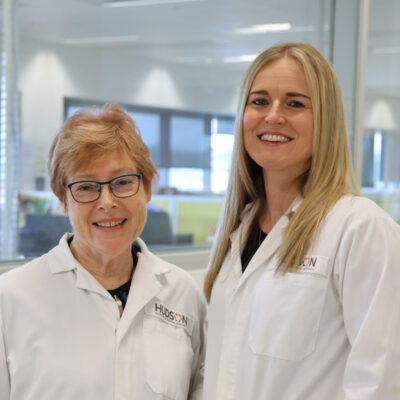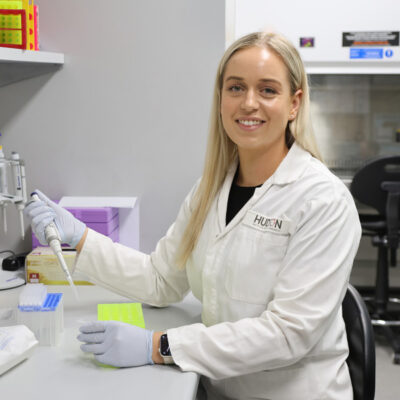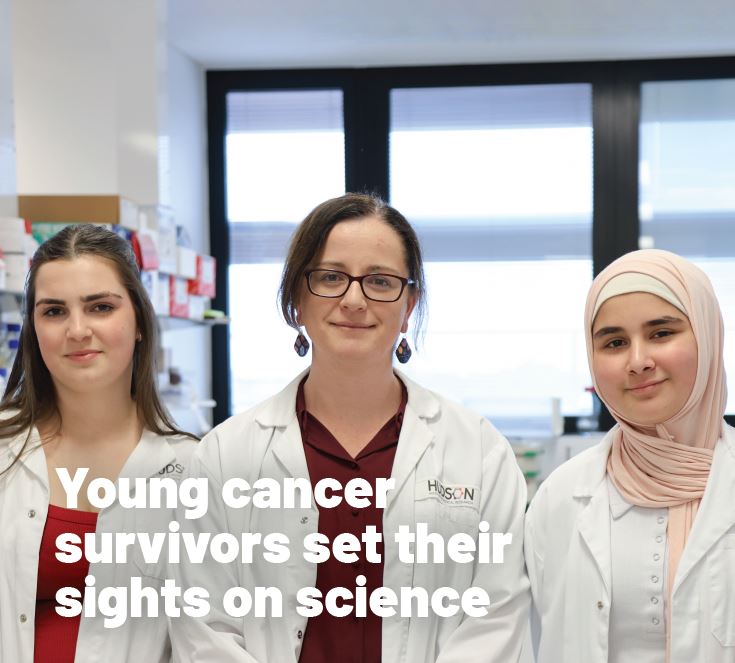Good news for babies born through assisted reproduction technology
By Hudson Institute communications
A large population-based health comparison has shown that Australians born through assisted reproduction technology are as healthy as people conceived naturally.

The study by Murdoch Children’s Research Institute with Hudson Institute’s Professor Rob McLachlan and collaborator, is the largest ever health comparison of adults conceived through assisted reproduction technology (IVF and GIFT) and adults conceived without assistance.
Researchers looked at 193 people aged between 22 to 35 years born using assisted reproduction technology and found, when compared to a control group, they showed no evidence of increased risk for heart disease, diabetes, restricted growth, or well-being or respiratory problems.
There were no major differences in these clinical assessments even when taking into account factors such as birth weight differences.
While the assisted reproduction technology group had a higher self-reported prevalence of ever having asthma or breathing problems, the physical respiratory assessments found no significant differences between the two groups.
Some benefits for those born with assistance
Interestingly, the adults born through one type of assisted reproduction technology, in vitro fertilisation, did better than the control group on many qualities of life indicators. They felt better about their finances, safety, environment and housing than the control group.
The research, published in the Fertility and Sterility journal, suggests that they are relatively socio-economically advantaged. Additionally, the researchers hypothesised the psychosocial adjustment may be positively influence by being born to parents who seek IVF to achieve parenthood.
Researchers’ approach
The researchers used a series of physical assessments and questionnaires on the 193 adults conceived through assisted reproduction technology and 86 controls of the same age conceived naturally.
Participants had an average age of 27 years, and among the cohort were some of the first Australians to be born through assisted reproduction technology, as well as some of the first assisted reproduction babies in the world. Participants were split 80 per cent born using IVF and 20 per cent using GIFT.
Assessments included measuring carotid artery thickness, blood pressure, overall body dimensions, respiratory function, lipid profiles, free fatty acids, blood glucose and insulin levels. Quality of life, demographics and self-reported health status were assessed by questionnaire.
Positive news for a growing technology
Professor Rob McLachlan said since the first Australian IVF baby was born in 1980, more than 200 000 babies have been born with the help of assisted reproduction technology.
Prof McLachlan said, “Australia has a pioneering role in IVF and we have a compelling need and responsibility to understand the health of people born through assisted reproductive technologies throughout their lives.”
While the largest of its type in the world, Murdoch Children’s Research Institute Professor Jane Halliday said the study was limited by the lower than expected participation rate but was confident the sample was representative of all the potential participants.
“One in every 25 Australian babies are now born via assisted reproduction technology, that means there is one in every classroom,” Prof Halliday said.
“Given the strong uptake of assisted reproduction technology, studies into the technology’s potential long-term health outcomes are vital.”
Assisted reproduction technology facts
Gamete intrafallopian transfer (GIFT) involves removing eggs from a woman’s ovaries, and placing them in one of the Fallopian tubes, along with the man’s sperm.
Invitro fertilisation (IVF) involves removing a woman’s egg and a man’s sperm, fertilising them in a lab, and growing them in the lab for a few days before they are transferred to the womb.
Collaborators | Children’s Hospital Foundation, Monash IVF Research and Education Foundation, and Reproductive Biology Unit Sperm Fund, Melbourne IVF.
In this article
About Hudson Institute
Hudson Institute’ s research programs deliver in three areas of medical need – inflammation, cancer, women’s and newborn health. More
Hudson News
Get the inside view on discoveries and patient stories
“Thank you Hudson Institute researchers. Your work brings such hope to all women with ovarian cancer knowing that potentially women in the future won't have to go through what we have!”





